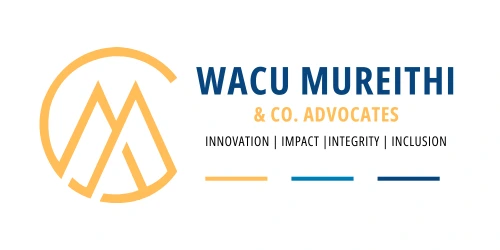Debt collection is a vital aspect of financial management for businesses and individuals. However, to protect the rights of debtors, creditors must navigate the Kenyan legal framework governing debt collection. Noncompliance with these laws can render debt collection actions abusive, illegal, or even void, potentially leading to liability for the creditor.
Adhering to legal requirements not only facilitates successful debt recovery but also shields creditors from liability.
This comprehensive guide explores the legal framework for debt collection in Kenya, including key laws, creditor and debtor rights, repercussions for irregular collection practices, and recent legal developments, especially concerning mobile loan providers.
Overview of Debt Collection Laws
In Kenya, debt collection is governed by several key statutes, including:
- Civil Procedure Act: This Act outlines the legal procedures for initiating debt recovery lawsuits, including demand letters, filing suits, and enforcing judgments.
- Limitation of Actions Act: This Act specifies the time limits for filing debt recovery lawsuits, generally set at six years from when the debt became due.
- Law of Contract Act: Governing contract formation and enforcement, this Act ensures that loan agreements are legally binding and enforceable.
- Debt (Summary Recoveries) Act: This Act applies to sums declared as civil debts by Parliament, allowing for summary recovery procedures.
- Consumer Protection Act: This recent legislation aims to protect consumers against unfair practices in the marketplace, including abusive debt collection practices.
Key Provisions in Kenyan Law
Understanding the laws highlighted above ensures the debt collection process is fair and legally compliant. The key principles of the debt collection process are:
- Transparency: Creditors must provide clear information about the debt, including the amount owed and the basis for the claim.
- Fair Treatment: The law mandates that debtors be treated with dignity and respect throughout the collection process.
- Dispute Resolution: Debtors have the right to contest the validity of the debt and seek resolution through established channels.
Rights and Obligations of Creditors
Creditors have specific rights and obligations under Kenyan law:
- Right to Collect Debt: Creditors can pursue debt recovery through legal channels, provided they comply with applicable laws.
- Obligation to Follow Legal Procedures: Creditors must adhere to prescribed legal processes and avoid engaging in harassment or intimidation.
- Duty to Provide Information: Creditors are required to inform debtors about their rights and the specifics of the debt.
Rights and Protections for Debtors
Debtors also possess important rights and protections:
- Protection from Harassment: The law protects debtors from abusive or coercive collection practices.
- Right to Dispute Debt: Debtors can contest the validity of the debt and request verification from creditors.
- Access to Legal Remedies: Debtors can seek redress through courts if they believe their rights have been violated.
Repercussions of Irregular Collection on Creditors
Creditors who engage in illegal debt collection practices may face severe repercussions, including:
- Lawsuits for Damages: Debtors can sue for harassment or emotional distress, potentially resulting in compensatory or punitive damages.
- Regulatory Penalties: Regulatory bodies may impose fines for violating debt collection laws, especially in cases of systemic abuse.
- Loss of Collection Rights: Illegal collection methods can result in loss of the right to pursue the debt, with courts potentially nullifying the claim.
- Licensing Issues: Repeated violations may lead to revocation or suspension of operating licenses, hampering business operations.
- Damage to Reputation: A history of unlawful practices can erode trust and negatively impact business relationships.
Enforcement Mechanisms
The Kenyan legal framework provides various enforcement mechanisms for debt recovery, including:
- Court Orders: Creditors can seek court orders for debt recovery, allowing for enforcement through garnishment or attachment of assets.
- Mediation and Arbitration: Alternative dispute resolution mechanisms can facilitate settlements without resorting to litigation.
- Regulatory Oversight: Regulatory agencies monitor debt collection practices to ensure compliance with consumer protection laws.
We have also written a separate article on Debt Collection in Kenya: the process and challenges and Understanding Debt Collection and Debt Recovery to help explain the differences between the two.
Recent Legal Developments in The Legal Framework on Debt Collection
Recent developments in debt collection have highlighted the challenges faced by mobile loan providers. These include issues related to:
- High-Interest Rates: Predatory lending practices leading to excessive debt burdens on borrowers.
- Data Privacy Concerns: The use of personal data for aggressive collection tactics, raising privacy issues under the Data Protection Act.
- Consumer Complaints: Increased reports of harassment and intimidation by mobile loan providers, prompting calls for stricter regulation.
Frequently Asked Questions
- What should I do if I’m being harassed by a debt collector?
- Document the harassment and report it to relevant authorities or seek legal advice.
- How can I dispute a debt I believe is invalid?
- Request verification of the debt from the creditor in writing, and consider seeking legal assistance if necessary.
- What are my rights as a debtor in Kenya?
- You have the right to fair treatment, dispute the debt, and seek legal remedies for violations of your rights.
Conclusion
Navigating the legal landscape of debt collection in Kenya is crucial for both creditors and debtors. Understanding the rights and obligations established by law helps ensure fair practices, protects consumer rights, and fosters healthy financial relationships. As recent developments indicate, compliance with these laws is not just a legal obligation but a key aspect of sustainable business practices.
